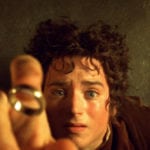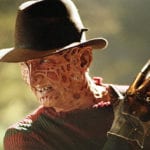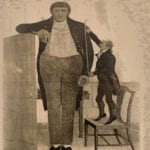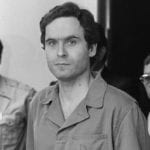 History
History  History
History  Health
Health 10 Everyday Activities That Secretly Alter Consciousness
 History
History Top 10 Historical Disasters Caused by Someone Calling in Sick
 Animals
Animals 10 New Shark Secrets That Recently Dropped
 Movies and TV
Movies and TV 10 Forgotten Realities of Early Live Television Broadcasts
 Technology
Technology 10 Stopgap Technologies That Became Industry Standards
 Weird Stuff
Weird Stuff 10 Wild Facts About Taxidermy That You Probably Didn’t Know
 Travel
Travel 10 Beautiful Travel Destinations (That Will Kill You)
 Miscellaneous
Miscellaneous 10 Modern Marriage Rituals Born from Corporate Branding
 Weird Stuff
Weird Stuff Ten Bizarre Visions of 2026 from Fiction
 History
History 10 “Modern” Problems with Surprising Historical Analogs
 Health
Health 10 Everyday Activities That Secretly Alter Consciousness
 History
History Top 10 Historical Disasters Caused by Someone Calling in Sick
Who's Behind Listverse?

Jamie Frater
Head Editor
Jamie founded Listverse due to an insatiable desire to share fascinating, obscure, and bizarre facts. He has been a guest speaker on numerous national radio and television stations and is a five time published author.
More About Us Animals
Animals 10 New Shark Secrets That Recently Dropped
 Movies and TV
Movies and TV 10 Forgotten Realities of Early Live Television Broadcasts
 Technology
Technology 10 Stopgap Technologies That Became Industry Standards
 Weird Stuff
Weird Stuff 10 Wild Facts About Taxidermy That You Probably Didn’t Know
 Travel
Travel 10 Beautiful Travel Destinations (That Will Kill You)
 Miscellaneous
Miscellaneous 10 Modern Marriage Rituals Born from Corporate Branding
 Weird Stuff
Weird Stuff Ten Bizarre Visions of 2026 from Fiction
10 Works Of Pop Culture Affected By Real-Life Events
In his famous essay “The Decay of Lying,” Oscar Wilde wrote “Life imitates art far more than art imitates life”. Believe it or not, this is an occurrence which can often take place within pop culture. Sometimes, a film or television show will be completed and ready to be released to the public when a real-life event occurs with surprising parallels to fictitious events.
One of the most recent examples of this was the movie Gangster Squad, which contained a scene in which gangsters fire machine guns at people inside a movie theater. Unfortunately, a horrific mass shooting took place in an Aurora, Colorado movie theater in July 2012, and the release of Gangster Squad was postponed so that the aforementioned sequence could be replaced. If a real-life event is tragic or has a noticeable effect on the work’s content, this can sometimes necessitate its delay, alteration, or even outright cancellation.
10 Joel Schumacher Keeps Having His Films Delayed By Real-Life Tragedies
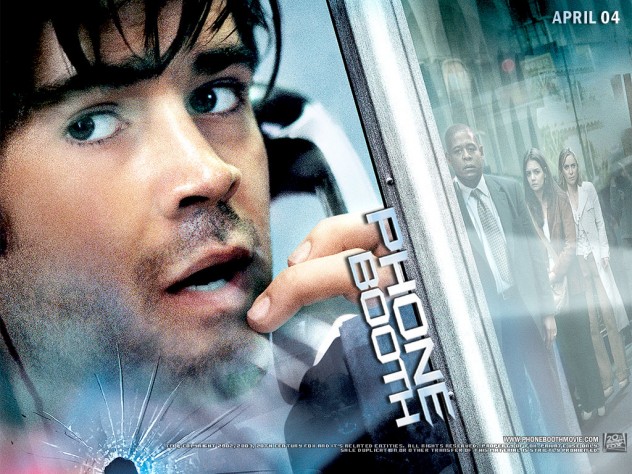
In 2001, director Joel Schumacher was slated to have two films released—Bad Company and Phone Booth—but his work kept running into a string of bad luck. Bad Company was an action-comedy in which Anthony Hopkins and Chris Rock attempt to stop terrorists from blowing up New York City, but because of September 11, its original December release date was postponed until June 2002. Phone Booth, a thriller featuring Colin Farrell as a man held hostage in a Manhattan phone booth by a deranged sniper, also had its release delayed because of the events of September 11. Even though Phone Booth did not feature any terrorism, the studio believed that audiences would not be in the mood for a dark thriller set in Manhattan.
The new release date for Phone Booth was scheduled to be November 15, 2002. Remarkably, the film’s release would be postponed a second time by another horrific real-life tragedy. For a three-week period in October 2002, the Washington, D.C. area was terrorized by a sniper named John Allen Muhammad and his teenage accomplice, Lee Boyd Malvo. In what would become known as the “Beltway sniper attacks,” 10 people were killed and three others critically injured by sniper fire before the duo was finally captured on October 24. Naturally, the events portrayed in Phone Booth suddenly hit way too close to home, so the film’s release was delayed again. It didn’t get a run in theaters until April 2003.
9 Two Reality Shows Cancelled After Contestant Commits Murder-Suicide

In 2009, Ryan Jenkins was a contestant on a new VH1 reality show called Megan Wants a Millionaire, which featured 17 wealthy men competing for the love of a woman. Jenkins wound up finishing third in the competition and met a model named Jasmine Fiore shortly after filming was complete. Soon after, Jenkins was selected to be a contestant on the third season of another VH1 reality show, I Love Money. However, tragedy would soon prevent this season from ever airing.
On August 15, shortly after the filming of I Love Money, the body of Jasmine Fiore was discovered in a suitcase inside a dumpster in Buena Park, California. She had been strangled to death and mutilated so badly that she was only identified by the serial numbers on her breast implants. It turned out that Ryan Jenkins had a history of assaulting women, but VH1 failed to notice this in their background check when they selected him to be a contestant.
Jenkins was quickly charged with Fiore’s murder, but before he could be arrested, he committed suicide by hanging himself inside a British Columbia hotel room. At this time, only three episodes of Megan Wants a Millionaire had aired, but Jenkins’ murder-suicide prompted VH1 to cancel the show. While it’s never been confirmed if Jenkins was set to be the winner on the third season of I Love Money, VH1 chose not to air the season at all.
8 Jackie Chan Film About Terrorist Attacks Is Aborted After September 11
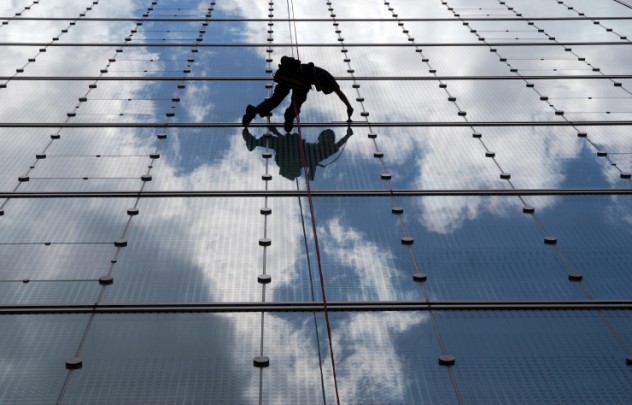
It goes without saying that the tragic events of September 11, 2001 had a huge effect on the world of entertainment. There were many films and television shows that provided an unintentionally inappropriate reminder of the event that wound up being delayed or altered. For instance, a comedy named Big Trouble was originally set to open in movie theaters on September 21, but its release was postponed seven months because it featured a sub-plot about a terrorist smuggling a bomb aboard an airplane. However, one film had to be flat-out cancelled because of September 11—a Jackie Chan comedy called Nosebleed.
Unfortunately, Nosebleed had the worst possible premise for a comedy made in 2001. Chan would play a window washer at the World Trade Center. Even worse, the storyline would involve him stopping terrorists who attempt to attack New York City and want to blow up the WTC and the Statue of Liberty! After September 11, the studio briefly considered doing a complete rewrite the film, but ultimately decided to scrap the entire project.
However, according to Jackie Chan, the circumstances could have been much worse. The production had tentatively planned to start shooting scenes at the Windows of the World restaurant in the World Trade Center on 7:00 AM on September 11. However, because the script was not ready in time, the shooting was delayed and another potential tragedy was avoided.
7 WWE Forced To Scrap Character After London Bombings
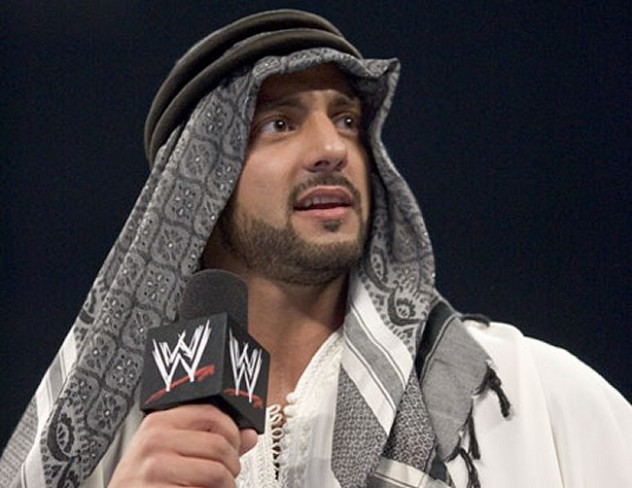
In late 2004, World Wrestling Entertainment decided to introduce a controversial new wrestler named Muhammad Hassan. The villainous Hassan character was an Arab-American (actually portrayed by an Italian-American named Mark Copani) who had become angry about all the prejudice and stereotyping he had faced since September 11. He took out his aggression by viciously attacking other wrestlers. On July 4, 2005, WWE taped an episode of their weekly program, Smackdown, which aired on the United Paramount Network. It featured a segment where Hassan hired a group of masked terrorist-like figures to attack his opponent, The Undertaker.
Three days after this episode was taped, London, England was attacked by a series of coordinated terrorist suicide bombings on their public transport system, which took the lives of 52 innocent civilians and injured 700 others. The episode of Smackdown aired mere hours later. Advisory warnings appeared throughout the show, but the full segment involving Hassan’s terrorist thugs was left intact.
Both WWE and UPN wound up facing heavy criticism for not editing the segment out of the broadcast. UPN responded to the backlash and immense public pressure by demanding that WWE stop featuring the controversial Muhammad Hassan character. After losing a match at a Pay-Per-View event a few weeks later, Hassan was completely eliminated from all future WWE storylines and Marc Copani was soon released from his contract.
6 Billy Wilder Film Undermined By Construction Of Berlin Wall
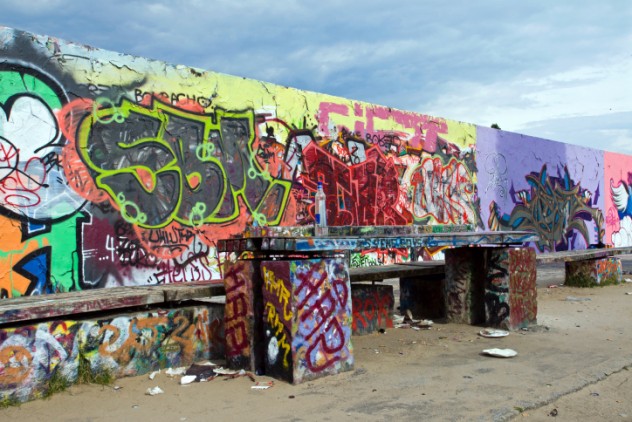
In 1961, legendary director Billy Wilder directed a comedy called One, Two, Three. The film starred James Cagney as a high-ranking Coca-Cola executive working in West Berlin who is assigned to watch over his boss’s 17-year-old daughter. He is soon shocked to discover that she has secretly gotten married to a communist from East Berlin. One, Two, Three was meant to be a lighthearted comedy about cultural differences in Germany, but during the middle of shooting, the entire plot was undermined by a historic real-life event.
The production was taking place in Berlin when the Berlin Wall went up on the morning of August 13, completely sealing off the border between East and West Germany. As a result, Wilder was forced to move the production to Munich. However, the biggest problem was that the entire plot would no longer make much sense by the time One, Two, Three was released. As a result, Wilder was forced to add a disclaimer to the beginning of the film which acknowledged these real-life events and made it clear that the Wall did not go up until after shooting had already started.
Unfortunately, One, Two, Three was released to disappointing box office numbers, since audiences no longer found the subject matter to be appropriate for a lightweight comedy. In spite of Wilder’s disclaimer, the film still drew negative reviews from critics who thought he was crassly exploiting real-life events.
5The Program Cuts Out Key Scene After Teenagers Mimic Dangerous Stunt

In 1993, a sports movie about the inner workings of college football called The Program was released into theaters. It received mostly negative reviews and performed rather poorly at the box office, but its biggest legacy was unintentional. In a scene from the film which was featured prominently in the trailers, a group of college football players decide to display their toughness by performing an extremely dangerous daredevil stunt which involves lying down in the middle of a road while a bunch of cars pass them by. Unfortunately, this scene would soon be erased from existence after some real-life teenagers decided to perform this stunt.
Shorty after attending a screening of The Program, three teens—18-year old Michael Shingledecker, 17-year old Michael Macias, and 17-year old Dean Bartlett—were killed after emulating the scene by lying down in the middle of the road as oncoming traffic headed towards them. Shingledecker was killed instantly, while Macias and Bartlett were seriously injured. In response to the tragedy, the scene was removed from future screenings of The Program and all advertising surrounding the film. The sequence was also cut out when the movie was eventually released on home video, and it hasn’t seen the light of day ever since.
4 Ending of Fever Pitch is Rewritten After Boston Red Sox Win World Series
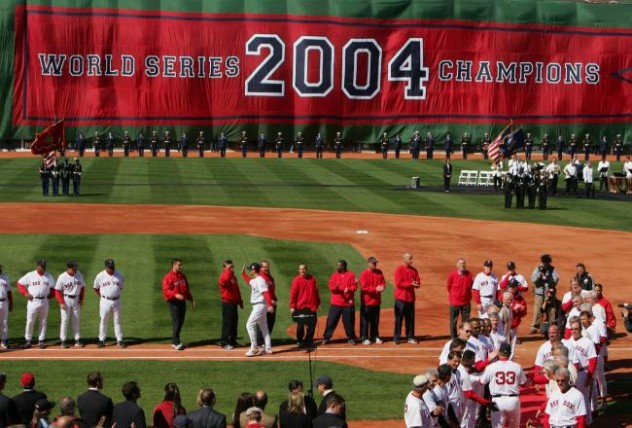
In 2004, Jimmy Fallon starred in a romantic comedy called Fever Pitch, portraying a die hard fan of the Boston Red Sox baseball team who attempts to balance his obsession with a relationship with Drew Barrymore. The film made numerous references to the infamous “Curse of the Bambino,” which implied that the Red Sox were cursed to never win another World Series after selling off Babe Ruth to the rival New York Yankees in 1918. During the 2004 American League Championship series, it seemed like this curse was going to continue as the Red Sox lost their first three games to the Yankees.
Miraculously, they staged a comeback against the Yankees in the ninth inning of Game 4 before winning later that night and taking the next three straight games in order to win the series. They would then go on to win their first World Series championship in 86 years. However, because Fever Pitch was slated to be released in April 2005, all of the film’s references to the “Curse of the Bambino” instantly became outdated.
As a result, the filmmakers decided to re-shoot the ending in order to accommodate this. The lead characters’ climactic reconciliation would now take place on the field at Fenway Park, right before the Red Sox made their miraculous comeback in Game 4. When it became apparent that the team was going to win the World Series, the filmmakers even made last-minute arrangements to have Jimmy Fallon and Drew Barrymore run onto the field to celebrate with the Red Sox after their victory, so they could incorporate this real-life footage into the film.
3 Heath Ledger Dies During Filming of Movie, Three Actors Replace Him
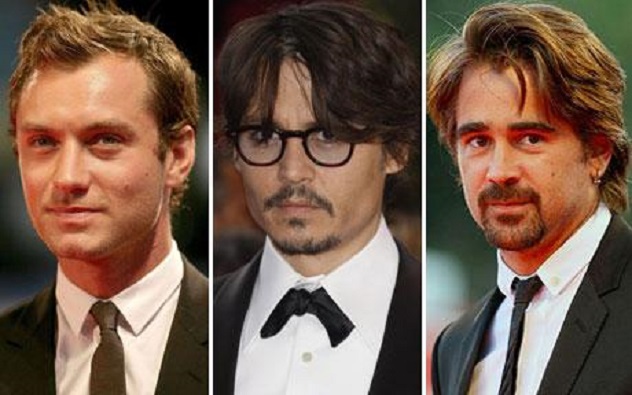
On January 22, 2008, the world was shocked by the sudden death of actor Heath Ledger, who died from an accidental intoxication from prescription drugs. Ledger had just finished portraying the Joker in The Dark Knight, an acclaimed performance which would garner him a posthumous Academy Award the following year. However, this was not actually Heath Ledger’s final performance. At the time of his death, Ledger was in the midst of playing the lead role in Terry Gilliam’s fantasy film, The Imaginarium of Doctor Parnassus. Only one-third of the movie had been filmed before Ledger’s passing suspended the production. Ledger’s death could have led to the entire project being scrapped, but the nature of the plot allowed the filmmakers to dream up a unique solution.
While they initially intended to use CGI to salvage the film, the production soon managed to score three more A-list actors—Johnny Depp, Colin Farrell, and Jude Law—to “finish” Ledger’s performance. The story involved Ledger’s character making a bet with the devil and going through a magical mirror into a dream world. The conceit would be that the appearance of Ledger’s character would change every time he entered different magical realms, allowing three different actors to portray his character. This approach allowed Gilliam to finish the film and eventually get it released. Depp, Farrell, and Law each donated their full salaries to Ledger’s two-year-old daughter.
2 The West Wing Changes Outcome of Climactic Election After Cast Member’s Death
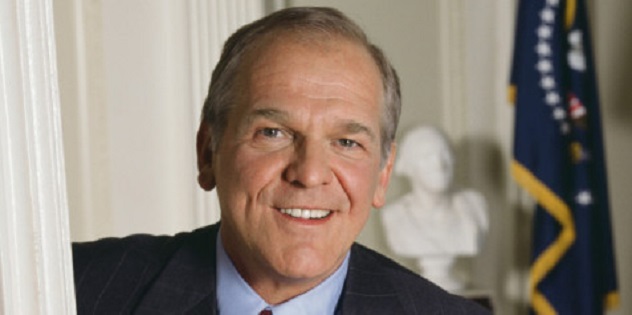
For seven seasons, John Spencer played the role of White House Chief of Staff Leo McGarry on The West Wing, garnering four Emmy Award nominations and one victory. However, in the midst of filming the show’s final season, Spencer unexpectedly died of a heart attack at the age of 58 on December 16, 2005.
It’s not uncommon for a TV series to have to deal with the sudden death of a cast member and find a way to write around it. However, in Spencer’s case, his death compelled the show’s writers to change the entire ending of the series. During the season, Leo McGarry became the Democratic Party nominee for Vice President of the United States, and the show was building up to a climactic election to close off the series. The West Wing was originally slated to end with the Republican Party winning the election and re-entering the White House, but Spencer’s death changed all that.
It was written into the script that Leo McGarry would die of a sudden heart attack on the night of the election, but the writers ultimately decided that it would be too depressing for the show`s Democratic presidential nominee to lose both the election and his running mate at the same time. As a result, the ending of was rewritten to have the Democrats garnering a narrow bittersweet victory to maintain their place in the White House.
1WWE Fake Death Storyline Aborted After Real Death

On June 11, 2007, World Wrestling Entertainment concluded their weekly television show, Monday Night RAW, with one of their strangest scenes ever. The company’s owner, Vince McMahon, was shown leaving the arena at the end of the live show and climbing into a limousine—which suddenly exploded! For the next two weeks, WWE programming would pretend that McMahon was “dead” and that the FBI was investigating what happened. Even in the wacky world of pro wrestling, “killing off” a prominent character was a pretty bizarre scenario, so fans were curious about where this storyline would go. However, the storyline soon came to an abrupt end after a horrific real-life death.
The plan for the June 25 edition of RAW was to do a fake “tribute show” for Vince McMahon. However, early that day, the company received some very shocking news: Chris Benoit, one of the most respected veteran wrestlers on the roster, had been found dead at his home in Atlanta, along with his wife, Nancy, and their seven-year-old son, Daniel. When viewers tuned into RAW that night, they were surprised to see the supposedly “dead” McMahon standing in the middle of the ring, pretending that the scene with the exploding limousine never happened. The fake tribute show for the late Vince McMahon had suddenly morphed into a real tribute show for the late Chris Benoit.
In another ironic twist, that night’s edition of RAW was presented as a loving tribute to Benoit which celebrated his life and career. However, word soon got out that Benoit had actually murdered his family before hanging himself. The backlash towards WWE was so strong that it is now completely taboo to mention Chris Benoit’s name on any of their programming.
Robin Warder is a budding Canadian screenwriter who has used his encyclopaedic movie knowledge to publish numerous articles at Cracked.com. He is also the co-owner of a pop culture website called The Back Row and recently worked on a sci-fi short film called Jet Ranger of Another Tomorrow.
